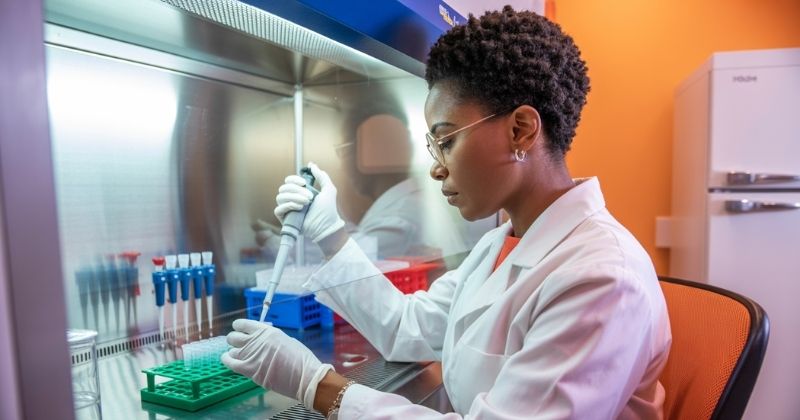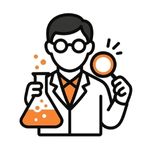
Biomedical science is the study of the human body and its functions, mechanisms, and diseases. This field is essential for developing new treatments and cures for illnesses that affect people daily. In South Africa, biomedical science is a highly sought-after career path for many people with an interest in science and the healthcare industry. This article aims to provide comprehensive information about biomedical science salaries in South Africa, including average salaries, factors that influence salaries, and how they compare to other healthcare professions.
Key Takeaways
- Career Path and Education: Biomedical scientists in South Africa require a bachelor’s degree, with potential postgraduate qualifications. They work in hospitals, clinics, and research institutions, playing a key role in advancing medical knowledge.
- Salary Range: Salaries vary based on education, experience, and location. Entry-level salaries range from R230 000 to R300 000, mid-level salaries from R420 000 to R700 000, and senior-level salaries from R1.4 million to R3 million per annum.
- Job Growth: The demand for biomedical scientists is increasing in South Africa, offering opportunities in clinical labs, hospitals, research institutions, and universities, with job growth driven by the need for medical testing and new technologies.
About Arcadia Finance
Apply for your loan effortlessly with Arcadia Finance. Enjoy zero application fees and select from 19 distinguished lenders, all adhering to South Africa’s National Credit Regulator standards. Benefit from a smooth process and dependable options suited to your financial requirements.
What Is Biomedical Science?
Biomedical science involves the combined investigation of human physiology, diseases, and medical treatments to better understand health conditions and improve how they are addressed. The field focuses on applying scientific methods to identify causes of illness and develop medical solutions that support patient care and treatment strategies.
The term biomedical science covers a broad scope of study, from laboratory-based research into how treatments work, to analysing disease pathways and how the body responds. This includes disciplines such as pharmacology, cell biology, molecular biology, biochemistry, medicinal chemistry, and molecular medicine, all of which contribute to the development and improvement of therapies.
This wide-ranging approach gives individuals in the field of biomedical science the ability to pursue career paths aligned with their specific scientific interests, making it a popular choice for those who are interested in both medical research and healthcare solutions.

Understanding Biomedical Science as a Career in South Africa
Biomedical science is an exciting and dynamic field that offers a range of career opportunities for those interested in healthcare and science. Biomedical scientists are at the forefront of medical research and development, working to improve the diagnosis, treatment, and prevention of diseases.
In South Africa, biomedical scientists play a crucial role in the healthcare industry, working in hospitals, clinics, and research institutions to advance medical knowledge and improve patient outcomes.

The Role of Biomedical Scientists
Biomedical scientists are responsible for conducting laboratory tests on patient samples, analysing the results, and interpreting them. They use sophisticated equipment and techniques to detect disease markers or abnormal functions in the human body. Biomedical scientists might also use genetic analysis or imaging techniques such as MRI or CT scans to diagnose medical conditions.
Biomedical scientists work closely with other healthcare professionals, including doctors, nurses, and laboratory technicians. They collaborate on patient care plans and provide expert advice on the interpretation of test results.

Required Education and Qualifications
Biomedical science is a field that requires extensive education and training. To become a biomedical scientist in South Africa, you need to complete a bachelor’s degree in biomedical science, biology, or a related field.
After completing your undergraduate degree, you can pursue a postgraduate qualification, such as a master’s or Ph.D. in biomedical science or a related field. These advanced degrees provide specialised knowledge and research experience that can help you stand out in the job market.
Once you have completed your education, you will need to register with the Health Professions Council of South Africa (HPCSA) to practice as a biomedical scientist. This registration ensures that you meet the required standards of competence and professionalism in your field.

Job Opportunities and Growth Prospects
Biomedical science is a rapidly growing field in South Africa, with increasing demand for medical care and treatment. As a result, the need for biomedical scientists is likely to continue to grow in the coming years.
Biomedical scientists can work in a variety of settings, including clinical laboratories, hospitals, research institutions, and universities. With their specialised knowledge and expertise, biomedical scientists are in high demand in the healthcare industry.
According to the Bureau of Labor Statistics (BLS), the employment of medical laboratory technologists and technicians (who work in biomedical science) is projected to grow by 7% between 2019 and 2029, which is faster than the average for all occupations. This growth is driven by the increasing demand for medical testing and the development of new medical technologies.
» Read more: Is the Pathologist Salary as high as you think?
Life As A Biomedical Scientist
Most biomedical scientists work in laboratories, where they examine a broad spectrum of medical conditions such as cancer, hepatitis, meningitis, and blood disorders.
The role is highly diverse, requiring a combination of strong analytical thinking and hands-on laboratory ability.
You will be responsible for disease screening, identifying illnesses caused by bacteria and viruses, and tracking how patients respond to medicines or treatment plans.
Being skilled in technology is essential, as you will regularly use computer systems, microscopes, automated machines, and other laboratory tools.
You can choose to focus your career in one of four main disciplines:
- Infection sciences
- Blood sciences
- Cellular sciences
- Genomic or genetic sciences

Factors Influencing Biomedical Science Salaries in South Africa
Several factors can influence biomedical science salaries in South Africa. Understanding these factors is important for students and job seekers who are exploring the field of biomedical science.
Biomedical science is a field of study that combines biology and medicine to develop new treatments and therapies for diseases. Biomedical scientists conduct research, develop new technologies, and work with healthcare professionals to improve patient outcomes. The field is constantly evolving, and there is a growing demand for skilled professionals in South Africa.
Level of Education and Experience
Generally speaking, the more education and experience you have in biomedical science, the higher your salary will be. Biomedical scientists who have completed a master’s or Ph.D. program in biomedical science or a related field are likely to earn more than those with only a bachelor’s degree. Similarly, scientists with more years of experience in the field are likely to earn higher salaries than entry-level biomedical scientists.
Note that education and experience are not the only factors that determine salary. Employers also consider other factors such as job performance, leadership skills, and teamwork abilities when determining compensation.
Location and Cost of Living
The location where you work can also impact your salary. Salaries in major cities such as Johannesburg, Cape Town, and Durban tend to be higher than those in rural areas. Another factor to consider is the cost of living in your area. Bonuses, allowances, and other compensation packages might also vary based on the location or region.
For example, the cost of living in Cape Town is higher than in other parts of South Africa. This means that employers in Cape Town might offer higher salaries and compensation packages to attract and retain employees. However, it is important to consider other factors such as transportation costs, housing expenses, and taxes when evaluating the overall cost of living in a particular area.
Industry and Employer Type
The industry in which you work and the type of employer you have can also impact your salary. Biomedical scientists who work for universities or research institutions tend to earn lower salaries compared to those who work for pharmaceutical or biotech companies. Additionally, the size of the company or organisation can also impact salaries. Larger organisations might offer more generous compensation packages, including bonuses, benefits, and retirement plans.
Consider the type of work you want to do and the industry you want to work in when exploring career options in biomedical science. Some industries might offer more opportunities for growth and development, while others might offer more stability and job security.
Job Demand and Competition
The demand for biomedical scientists and their skills can also affect salaries. If there is a high demand for biomedical scientists, employers are likely to offer higher salaries and better compensation packages to attract and retain employees. Similarly, if there is a low supply of qualified biomedical scientists, employers might offer higher salaries to compete for the available talent.
Stay up-to-date with the latest trends and developments in the field of biomedical science to remain competitive in the job market. This might include attending conferences, networking with other professionals, and pursuing additional education or training.
Discover the opportunities that can transform your financial future with our article on the highest paying jobs in South Africa. From the medical field to the finance sector, explore the professions that not only offer high salaries but also promise job satisfaction and growth.

Average Biomedical Science Salaries in South Africa
Biomedical science is a rapidly growing field in South Africa, with a high demand for professionals in the industry. Biomedical scientists play a crucial role in the healthcare sector by conducting research, developing new treatments and medicines, and carrying out diagnostic tests.
When it comes to salaries, biomedical scientists in South Africa can expect to earn a decent income, with opportunities for growth and advancement in their careers.
| Role / Career Stage | Monthly Salary (ZAR) | Annual Salary (ZAR) | Notes |
|---|---|---|---|
| Entry-Level (Bachelor’s degree) | R19 000 – R25 000 | R230 000 – R300 000 | Junior lab technologists or biomedical scientists. |
| Entry-Level (Low-paying roles) | R10 000 – R12 500 | R125 000 – R150 000 | Assistants or trainees without specialisation. |
| Postdoctoral Fellow (Post-PhD) | R20 000 – R25 000 | R250 000 – R300 000 | Academic research position, usually stipend-based. |
| Mid-Career (5–10 yrs, Master’s) | R35 000 – R58 000 | R420 000 – R700 000 | Senior technicians, researchers, or lab managers. |
| Mid-Career (PhD-qualified) | R66 000 – R100 000 | R800 000 – R1 200 000 | Industry scientists or experienced researchers. |
| Senior-Level (10+ yrs, expert roles) | R117 000 – R250 000 | R1 400 000 – R3 000 000 | Department heads, R&D directors, senior scientists. |
| University Junior Lecturer | R40 750 – R45 300 | R489 000 – R544 000 | Entry academic role for Honours/Master’s holders. |
| University Lecturer (PhD-level) | R60 800 – R67 600 | R730 000 – R812 000 | Standard lecturer role for PhD holders. |
| Senior Lecturer / Assoc. Professor | R77 000 – R103 000 | R925 000 – R1 240 000 | Mid-senior academic teaching/research roles. |
| Full Professor | R115 000 – R129 000 | R1 390 000 – R1 550 000 | Senior-most university academic role. |
| Public Sector Average (overall) | ~R32 000 | ~R386 000 | Often more stable; slightly higher pay than private at lower levels. |
| Private Sector Average (overall) | ~R30 100 | ~R361 500 | Greater earning potential at senior/industry levels. |
» Explore further: Salaries in Biochemistry
Popular Biomedical Science Jobs
The most suitable biomedical science career will depend on a person’s academic background, professional strengths, and area of interest. Wages also differ based on location, meaning that what qualifies as a high-paying job in one region may not be viewed the same way elsewhere. Apart from the roles mentioned below, graduates with a biomedical science qualification may choose to continue their education and pursue work as a physician, lecturer, or in public health.

Forensic Scientist: Crime Scene Analysis And Reporting
Forensic scientists assist law enforcement agencies in analysing physical, chemical, biological, and psychological evidence gathered from crime scenes or labs. They compile detailed reports and may present their findings during court proceedings. Some are also responsible for conducting autopsies.
A bachelor’s degree in biomedical science, forensic science, or a related subject is required, though advanced qualifications may be necessary for specific roles.

Research Chemist: Advancing Health Products Through Chemistry
Research chemists examine chemical substances and reactions to improve or create new health-related products. Their work involves testing samples, performing experiments, evaluating effects on health, and refining product formulations. They are typically employed in research institutions, universities or government facilities.
At minimum, a bachelor’s degree in chemistry, biomedical science or a closely related discipline is necessary to enter the field.

Genetic Counsellor: Assessing Hereditary Health Risks
Genetic counsellors meet with clients to conduct genetic assessments, helping to identify potential health conditions linked to inherited traits. They interpret results, support clinical diagnoses, and guide patients through treatment decisions. Employment is usually in hospitals, private clinics, or research institutions.
The typical educational path includes a bachelor’s degree in biomedical science, biology, genetics or a related field, often followed by a master’s qualification in counselling, ethics or developmental biology.

Pharmaceutical Sales Representative: Medical Knowledge Meets Sales
Pharmaceutical sales representatives use their biological science knowledge to promote products to healthcare professionals. Their tasks include educating practitioners about medication, conducting product surveys, and monitoring how medications are prescribed and used. They are commonly employed by pharmaceutical firms.
Although some positions are open to those without formal qualifications, most require at least a bachelor’s degree.

Genetic Engineer: Solving Problems Through DNA Technology
Genetic engineers work with DNA structures to develop medical treatments or improve agricultural products. Their tasks may include creating disease-resistant crops, contributing to cancer research, or analysing DNA using advanced technologies. They typically work in healthcare, pharmaceutical companies, universities or regulatory bodies.
A bachelor’s degree in genetics, biotechnology, molecular biology, or a similar field is the minimum requirement. Internships may help in choosing a speciality. Those aiming for research leadership or patient treatment usually need further education.

Biologist: Studying Life And Environmental Interactions
Biologists examine how organisms function and interact with their surroundings. Their work often involves conducting research, collecting samples, and reporting results. Those with biomedical expertise are often based in laboratories, research centres or medical institutions.
To work in this field, a bachelor’s degree in biology, biomedical science, or a closely related area is required.

Biomedical Engineer: Designing Medical Equipment And Systems
Biomedical engineers combine engineering and health knowledge to develop medical tools, software, and systems. Their responsibilities include equipment maintenance, product testing, and ensuring the reliability of devices. They are usually found in labs, manufacturing, public health departments or research organisations.
Entry typically requires a bachelor’s degree in biomedical engineering or bioengineering, with some roles asking for postgraduate study.

Biomaterials Engineer: Creating Medical Devices With Biological Materials
Biomaterials engineers focus on combining biological materials with synthetic components to design implants, prosthetics, and diagnostic equipment. They may also provide training for clinical staff using these tools and work on applied research to improve healthcare delivery.
A bachelor’s degree in bioengineering, chemical engineering, biotechnology or similar fields is required. Although not mandatory, a master’s degree in biomaterials engineering or a related subject can lead to further opportunities.

Clinical Engineer: Improving Patient Lives Through Medical Innovation
Clinical engineers are involved in the design, testing, and development of medical devices such as prosthetics and implants. They collaborate with healthcare teams, develop prototypes, and look for ways to improve patient care through better equipment. They are often employed in hospitals, surgical centres, and global health organisations.
Candidates usually need a bachelor’s degree in biomedical science or mechanical engineering, along with relevant biology coursework. Further qualifications are helpful for those interested in research or leadership.

Cytotechnologist: Diagnosing Disease At The Cellular Level
Cytotechnologists are specialists in cell analysis, helping doctors to diagnose infections, diseases, and abnormalities. They prepare specimens for examination, interpret findings, and work alongside medical professionals. Their work settings include clinics, hospitals, research facilities, and academic institutions.
A bachelor’s degree in cytotechnology or a closely related subject is required. Additional specialist training may be needed if the degree is not specific to cytotechnology.

Comparing Biomedical Science Salaries to Other Healthcare Professions
While biomedical science is an excellent career in South Africa, it is essential to consider how its salaries compare to others in the healthcare industry.
| Profession | Typical Workplace | Role Overview | Average Salary (Annual, ZAR) |
|---|---|---|---|
| Biomedical Scientist | Hospitals, research labs, universities, biotech firms | Study the human body to aid diagnosis, treatment, and disease prevention | R230 000 – R1 400 000 |
| Medical Laboratory Technologist | Hospitals, clinics, research labs, pharmaceutical firms | Conduct tests on blood, urine, and other fluids to support diagnosis | ~R208 063 |
| Clinical Research Associate | Pharma companies, research organisations | Oversee clinical trials and ensure compliance with ethical and regulatory standards | R250 000 – R950 000 |
| Medical Scientist | Universities, research institutions, pharmaceutical labs | Perform research to develop treatments and advance medical understanding | R240 000 – R1 200 000 |
| Healthcare Administrator | Hospitals, clinics, health departments | Manage operations and staff within healthcare facilities | R310 000 – R820 000 |
Conclusion
Biomedical science is an exciting and rapidly growing field in South Africa. Salaries in this field are highly dependent on factors such as education, experience, location, and industry type. While salaries for biomedical scientists might be lower than some other healthcare professions, it is vital to remember the critical role that they play in the healthcare industry. Biomedical scientists are at the forefront of developing new treatments and cures for illnesses, making a significant contribution to the wellbeing of communities in South Africa and around the world.
Frequently Asked Questions
Yes, biomedical scientists are in high demand in South Africa due to the growing need for medical testing, research, and the development of new medical technologies. Their expertise is essential in various healthcare settings, including hospitals, clinics, and research institutions.
Biological scientists in South Africa typically earn between R230 000 and R300 000 per annum at entry level. With additional experience and advanced degrees, salaries can rise significantly, reaching up to R1.2 million per annum for senior-level positions.
Biomedical laboratory scientists in South Africa earn varying salaries based on their level of education and experience. Entry-level salaries range from R230 000 to R300 000 per annum, while mid-level professionals can earn between R420 000 and R700 000 per annum. Senior-level salaries can go up to R3 million per annum.
To become a biomedical scientist in South Africa, you must complete a bachelor’s degree in biomedical science or a related field. Postgraduate qualifications, such as a master’s or Ph.D., are beneficial for career advancement. Additionally, registration with the Health Professions Council of South Africa (HPCSA) is required to practice as a biomedical scientist.
The career prospects for biomedical scientists in South Africa are promising. With the increasing demand for medical research and testing, there are numerous opportunities for employment in clinical laboratories, hospitals, research institutions, and universities. Biomedical scientists can advance their careers by gaining experience, pursuing further education, and specialising in specific areas of biomedical science.
Fast, uncomplicated, and trustworthy loan comparisons
At Arcadia Finance, you can compare loan offers from multiple lenders with no obligation and free of charge. Get a clear overview of your options and choose the best deal for you.
Fill out our form today to easily compare interest rates from 19 banks and find the right loan for you.

